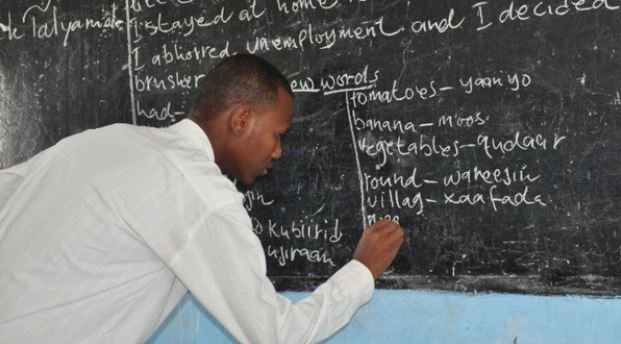In Kogi State, as across much of Nigeria, the mental health of educators in private schools remains an often overlooked issue, with significant consequences for both teachers and students. Private school owners, many of whom are driven by profit, display a nonchalant attitude toward the well-being of their staff. Some proprietors and proprietresses even embody tyrannical and warlord-like tendencies, creating toxic environments where teachers are subjected to harsh treatment. These owners often destroy teachers’ self-esteem, load them with unrealistic job demands, and offer low pay, all while disregarding the psychological and emotional needs of their staff. This negligence harms the teachers and undermines the quality of education, ultimately affecting the students.
Teachers are the backbone of the education system. They bear the immense responsibility of shaping young minds and preparing the next generation for a future that demands critical thinking, emotional intelligence, and resilience. However, in many private schools in Kogi State, teachers face high expectations in environments that offer little to no support for their mental health.
The daily struggles that teachers endure—overcrowded classrooms, insufficient resources, low pay, and the constant pressure to perform—take a toll on their mental well-being. The lack of adequate mental health support exacerbates these challenges, leaving many teachers feeling overworked, stressed, and burnt out. In private schools, the profit-driven nature of these institutions often takes precedence over staff welfare. Teachers often work long hours with little support or resources to manage the psychological burdens of their profession. Without access to counseling services or mental health resources, many teachers are left to cope on their own, sometimes at the cost of their well-being.
The mental health of teachers directly impacts the classroom environment. Research has shown that stressed and burnt-out teachers are less effective, leading to decreased student engagement and academic performance. When teachers are mentally and emotionally exhausted, their ability to create a positive, conducive learning environment diminishes. In many private schools, students can sense the tension in the classroom, often resulting in disruptions or disengagement. Teachers struggling with mental health issues may also find it difficult to relate to their students or manage classroom behavior effectively, creating an atmosphere of apathy and frustration.
Moreover, the mental health of teachers affects their long-term commitment to the profession. Teachers who feel undervalued and unsupported are more likely to leave the profession, contributing to high turnover rates. This instability disrupts the continuity of students’ education and burdens the remaining teachers with additional responsibilities, exacerbating the problem.
There is an urgent need for private school owners in Kogi State to recognize the importance of teachers’ mental health. Schools must adopt a more holistic approach to education—one that acknowledges the emotional and psychological needs of teachers as critical to the success of their students. Teachers should not merely be seen as tools for delivering content but as individuals who require support and care to perform their best. Private school owners must begin to foster environments that prioritize mental well-being. This includes providing teachers with access to counseling services, creating spaces where teachers can freely express concerns, and promoting a work-life balance that allows them to recharge and avoid burnout. Regular mental health check-ups and workshops on stress management should be integrated into the school culture, helping teachers manage the demands of their profession.
Additionally, teachers must be encouraged to prioritize their mental health. Just as they guide students to be resilient, they must learn to set boundaries and seek support when needed. Teachers should be given time and space to reflect on their emotional well-being, with encouragement to seek help when necessary. It is crucial for teachers to understand that taking care of their mental health is not a sign of weakness but rather a necessary part of being effective educators.
The mental health of teachers is not merely a personal issue; it is a matter of national significance. When teachers are mentally sound, they are better equipped to impart knowledge, nurture emotional intelligence, and foster the growth of their students. As the late educational philosopher Paulo Freire once said, “Education is not the teaching of knowledge, but the teaching of the ability to think critically and act conscientiously.” Teachers who are mentally healthy are more likely to inspire these qualities in their students.
The Nigerian education system cannot continue to ignore the mental health of its educators, especially in private schools where the focus is often more on financial gain than the well-being of those shaping the minds of future generations. School owners must recognize that investing in the mental health of their staff is an investment in the future of the country. By prioritizing teachers’ psychological well-being, schools will create healthier learning environments, reduce turnover rates, and ultimately provide better education for students.
The mental health crisis among private school teachers in Kogi State is a silent but urgent issue. Teachers who are emotionally and psychologically supported are better equipped to perform their duties and help students reach their full potential. Private school owners must take responsibility for the mental well-being of their staff by creating environments that promote support, balance, and care. In doing so, they will not only improve the lives of teachers but also contribute to the overall development of Nigeria’s education system. As the famous quote goes, “A healthy teacher is a healthy classroom.” It is time to turn this wisdom into action.
– Inah Boniface Ocholi writes from Ayah – Igalamela/Odolu LGA, Kogi state.
08152094428 (SMS Only)




